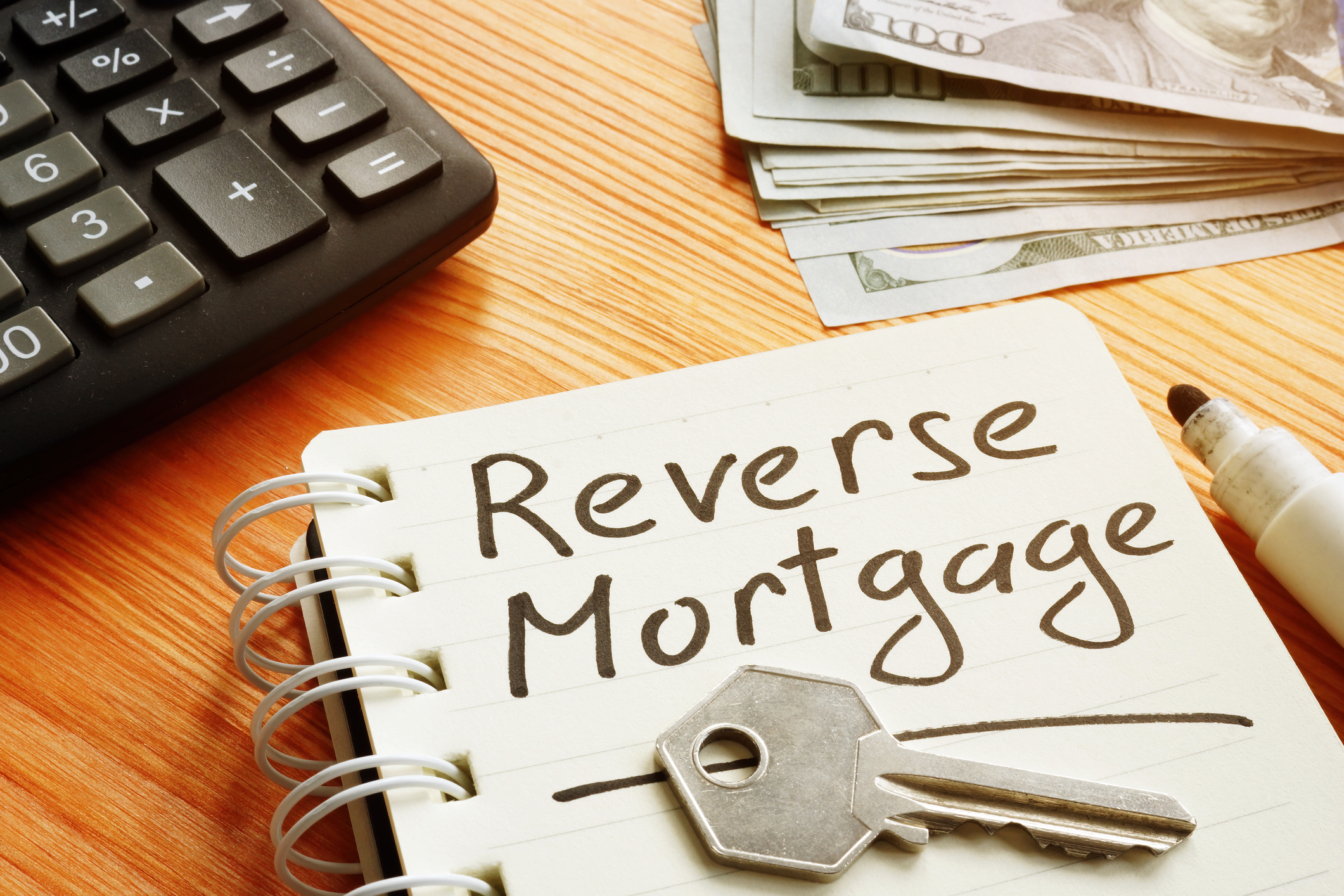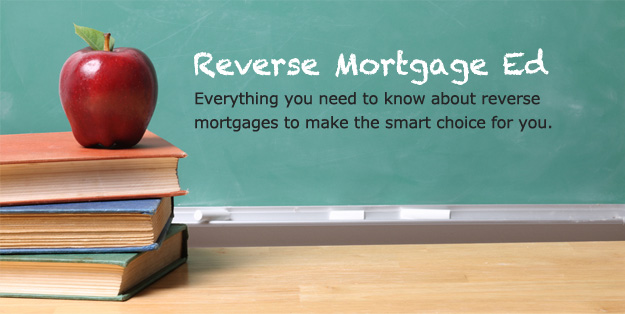Unlock Financial Freedom: Your Overview to Buying a Reverse Mortgage
Recognizing the details of reverse home loans is important for homeowners aged 62 and older looking for economic freedom. This one-of-a-kind financial instrument makes it possible for seniors to take advantage of their home equity, changing it into obtainable cash for different demands, from health care to way of living enhancements. Navigating the eligibility benefits, expenses, and requirements can be intricate. As you consider this choice, it is critical to comprehend not just exactly how it functions however additionally the implications it might carry your economic future. What are the crucial variables you should consider before making such an impactful decision?
What Is a Reverse Mortgage?

The essential allure of a reverse home loan hinges on its potential to improve economic versatility throughout retired life. Property owners can make use of the funds for various functions, consisting of medical costs, home renovations, or daily living costs, therefore giving a safeguard throughout a critical stage of life.
It is crucial to understand that while a reverse home loan permits raised capital, it likewise reduces the equity in the home with time. As interest builds up on the superior lending balance, it is crucial for possible debtors to carefully consider their long-term financial plans. Consulting with a monetary consultant or a reverse home mortgage specialist can provide valuable insights into whether this option aligns with an individual's financial objectives and circumstances.
Eligibility Requirements
Understanding the qualification needs for a reverse home mortgage is essential for home owners considering this economic alternative. To certify, applicants should be at least 62 years of ages, as this age criterion permits elders to accessibility home equity without month-to-month home loan repayments. Furthermore, the house owner needs to occupy the residence as their primary dwelling, which can consist of single-family homes, specific condos, and manufactured homes meeting specific standards.
Equity in the home is one more necessary need; house owners typically require to have a considerable quantity of equity, which can be established through an assessment. The amount of equity readily available will straight influence the reverse mortgage quantity. Candidates must show the capacity to keep the home, including covering building taxes, home owners insurance, and upkeep prices, guaranteeing the building remains in great problem.
Additionally, potential borrowers should undertake a financial evaluation to examine their revenue, credit report, and overall monetary scenario. This assessment helps loan providers establish the applicant's capability to satisfy recurring obligations associated with the residential property. Fulfilling these requirements is vital for securing a reverse home loan and making sure a smooth economic change.
Advantages of Reverse Mortgages
Various benefits make reverse home loans an attractive choice for senior citizens aiming to boost their economic adaptability. purchase reverse mortgage. Among the key advantages is the ability to convert home equity into cash without the need for monthly mortgage payments. This feature allows more tips here seniors to access funds for various needs, such as clinical expenditures, home renovations, or daily living prices, therefore relieving economic stress and anxiety
In addition, reverse home loans supply a safety and security web; senior citizens can remain to reside in their homes for as long as they fulfill the financing needs, promoting stability during retired life. The profits from a reverse home loan can also be used to delay Social Security advantages, possibly leading to higher payments later.
Moreover, reverse home loans are non-recourse financings, implying that borrowers will certainly never owe even more than the home's value at the time of sale, protecting them and their successors from monetary liability. Last but not least, the funds gotten from a reverse home mortgage are normally tax-free, adding an additional layer of financial alleviation. On the whole, these benefits setting reverse mortgages as a functional solution for elders seeking to enhance their economic circumstance while keeping their cherished home atmosphere.

Costs and Charges Involved
When thinking about a reverse home mortgage, it's important to be conscious of the different prices and costs that can influence the overall monetary photo. Recognizing these expenses is essential for making a notified decision concerning whether this monetary product is best for you.
Among the this key costs connected with a reverse mortgage is the origination cost, which can differ by lending institution however generally ranges from 0.5% to 2% of the home's assessed worth. Furthermore, house owners need to prepare for closing prices, which might consist of title insurance policy, assessment costs, and credit rating report charges, typically amounting to numerous thousand bucks.
One more considerable cost is mortgage insurance costs (MIP), which shield the lending institution versus losses. This charge is typically 2% of the home's value at closing, with a recurring yearly premium of 0.5% of the remaining loan equilibrium.
Last but not least, it is essential to think about ongoing prices, such as real estate tax, house owner's insurance, and maintenance, as the consumer stays responsible for these expenditures. By very carefully assessing these prices and charges, house owners can better analyze the monetary implications of going after a reverse mortgage.
Actions to Get Going
Starting with a reverse home mortgage includes numerous essential actions that can aid streamline the process and guarantee you make informed decisions. Initially, assess your monetary scenario and see here now identify if a reverse home loan straightens with your long-term goals. This consists of reviewing your home equity, current financial obligations, and the need for additional income.
Next, research study different lending institutions and their offerings. Look for respectable establishments with favorable reviews, transparent fee structures, and affordable rate of interest. It's vital to compare terms and conditions to locate the very best suitable for your needs.
After selecting a lender, you'll need to complete a comprehensive application process, which usually needs paperwork of earnings, possessions, and building information. Take part in a therapy session with a HUD-approved therapist, who will offer insights into the implications and responsibilities of a reverse mortgage.
Conclusion
In verdict, reverse home mortgages present a viable choice for seniors looking for to improve their financial security during retired life. By converting home equity right into easily accessible funds, house owners aged 62 and older can deal with various monetary needs without the stress of regular monthly repayments.
Comprehending the intricacies of reverse home loans is essential for home owners aged 62 and older seeking economic freedom.A reverse home mortgage is a monetary item created largely for property owners aged 62 and older, allowing them to transform a part of their home equity into cash money - purchase reverse mortgage. Consulting with a reverse home mortgage or a financial consultant specialist can offer beneficial insights into whether this alternative lines up with an individual's monetary objectives and circumstances
Moreover, reverse home mortgages are non-recourse fundings, suggesting that customers will certainly never ever owe even more than the home's worth at the time of sale, protecting them and their heirs from monetary obligation. Generally, these advantages placement reverse home mortgages as a practical solution for seniors seeking to improve their financial situation while maintaining their cherished home environment.